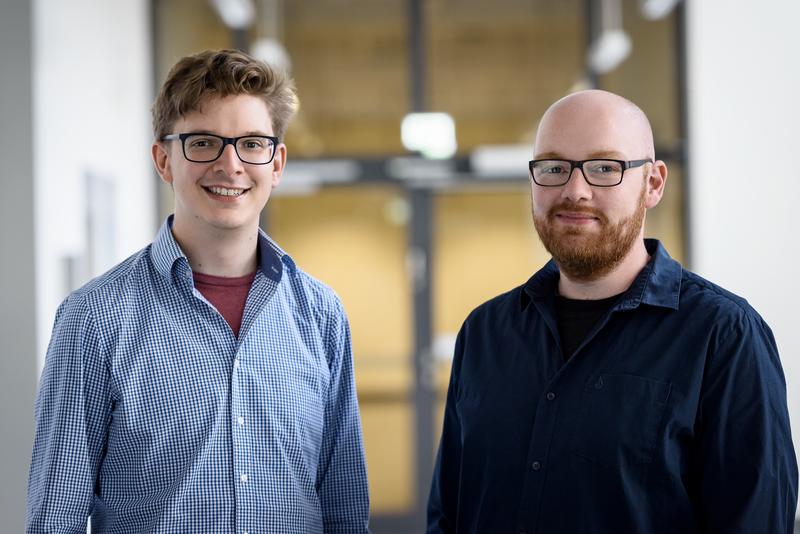
AI Innovations for Agriculture and Environmental Management

Benjamin Mewes (left) and Henning Oppel were awarded for their project “Okeanos” at Junge Spitzenforscher Forum (Forum for Excellent Young Scientists) in 2019.
Foto: Roberto Schirdewahn
Researchers at Ruhr-Universität Bochum (RUB) are developing digital applications intended to make it easier for various actors to better cope with weather events in the future.
Dr. Benjamin Mewes and Dr. Henning Oppel from the Institute of Engineering Hydrology and Water Resource Management are deploying Artificial Intelligence in their joint project “Okeanos”. While Benjamin Mewes focuses on irrigated agriculture, Henning Oppel is figuring out how to better predict flood events.
Farmers could save a lot of water
Agriculture is the largest consumer of fresh water globally. “Most of the time, farmers employ their expertise and experience to decide when and how to water their soil,” says Mewes. However, this results in hundreds of thousands litres of this valuable resource being wasted.
This could be remedied by a computer software that provides a recommendation for action based on all the important factors for irrigation – or better still, controls the irrigation systems itself.
Autonomous software units
Mewes’ solution deploys an agent-based soil/water model that he developed himself. Agents are software units that act autonomously and make decisions in accordance on a set of rules and that can represent complex systems and chains through their interaction with each other.
“The model is dynamic, can adapt to individual conditions, and it thus offers every farmer a tailor-made irrigation strategy,” as Mewes outlines the benefits.
Enabling precise flood warnings
Henning Oppel researches into a water management problem of a very different kind. He intends to pave the way for more precise flood warnings with the aid of machine learning.
In order to predict how the water level of a river will change, it is not enough to simply consider the local processes at the location for which a flood forecast is required. Rather, it is necessary to take the thousands of square kilometres that define a river’s catchment into consideration, including a wealth of different surfaces such as asphalt, forest soil or gravel, as water moves at different speeds on all of them.
Interesting for insurance companies and flood reporting services
“Due to the large number of active processes, it is difficult to apply a single process equation. Machine learning enables us to develop new process descriptions and add to existing concepts,” says Oppel.
A number of target groups might benefit from an improved solution in the form of an app: flood reporting services, insurance companies, fire brigades and technical assistance services, to name but a few.
Detailed article in the science magazine Rubin
You can find a detailed article on this topic in the science magazine Rubin. Texts on the website and images on the download page are free to use for editorial purposes, provided the relevant copyright notice is included.
Dr. Benjamin Mewes
Institute of Engineering Hydrology and Water Resource Management
Department of Civil and Environmental Engineering
Ruhr-Universität Bochum
Phone: +49 234 32 25896
Email: benjamin.mewes@rub.de
Dr. Henning Oppel
Institute of Engineering Hydrology and Water Resource Management
Department of Civil and Environmental Engineering
Ruhr-Universität Bochum
Phone: +49 234 32 25874
Email: henning.oppel@rub.de
https://news.rub.de/english/2019-09-25-water-resource-management-ai-has-found-it…












